While it's easy to cast blame on the religious right and former President Donald Trump for last week's reversal of Roe vs. Wade, the roots of 50 years of abortion precedent being vanquished actually run directly towards a small but influential group of law professors, lawyers, and judges that founded the Federalist Society 40 years ago in 1982.
To understand the above premise, you must first realize that the majority of Americans, 61 % according to the Pew Research Center, support abortion rights despite the best moral suasion efforts of Catholic and Evangelical activists since Roe became the formal law of the land in 1973.
When the Federalist Society was founded a decade later, it was designed for the stated purpose of being "...committed to the principles that the state exists to preserve freedom, that the separation of governmental powers is central to our Constitution, and that it is emphatically the province and duty of the judiciary to say what the law is, not what it should be..."
While this purpose sounds like a benign recitation of the fundamental aims of the three separate but equal branches of government as designed by the Framers of the Constitution, the TRUE purpose of the organization was to develop members who believed in "originalism," ones who would "strictly construe" the Constitution as they believed the Framers designed it way back in 1787.
Their theory, called "Strict Constructionism," was and remains problematic because it seeks to view modern laws passed by Congress (or enacted by a president's executive orders) through the eyes of 18th Century men who were white, overwhelmingly slave owners, and totally indifferent to their wives and daughters who they considered property.
In full disclosure, when I entered law school at the University of Florida during the 1995-96 school term, at the time I was a moderate Republican. "Why" and "how" I became a Republican—and eventually left the party—is a matter to discuss on another day. But as a founding member of the Morehouse College Republicans back in '91, it seemed logical to join the UF Law Republicans in ‘96—so I did. Our advisor would later encourage us to join the Federalist Society and, as there was no Internet at the time and little literature for me to delve deeply into their aims, a 23-year-old Hobbs showed up at his first meeting with an open mind.
Well, all seemed well with me and my new acquaintances who were happy to see a Black face in a predominantly white space, acquaintances who would soon applaud when I wrote columns in the Independent Florida Alligator about conservative economic or foreign affairs positions.
But when I wrote an editorial about Claude Neal, the 19-year-old Black man who was lynched near Marianna, Florida in 1934 for allegedly raping/killing a white woman, the Federalist chapter's leader made a smart aleck remark to my then girlfriend that, "Chuck sure as heck didn’t sound like a conservative in that latest article—tell him to calm all that down!"
Me being me, I stepped to him in between classes later that day and lit into him with a rhetorical fury, which was followed by a bunch of "I'm sorry" and "I was just kidding" excuses as he backpedaled from striking distance (I was somewhat intemperate and occasionally vicious in my disposition during my youth). Realizing that he, and by extension his Federalist crew, talked "individual liberties for all," but acted with an implied "for some," my time with them was at an end, no matter my earnest intention of bringing a strong Black voice to typically anti-Black arenas.
My final article for the Alligator newspaper at the University of Florida…
About a decade later, when I served as general counsel for the Florida NAACP, I was tapped by then Republican (now Democrat) Gov. Charlie Crist in 2007 to serve as one of his advisers on judicial nominations.
As one of the youngest members (age 35) in that inner circle, it was clear to me that in the decade since I had affiliated with the Federalists at UF, that the society's influence had grown exponentially in Florida and across the U.S. Even today, this influence is felt in the judicial nominating commissions that are formed on the state and federal levels—commissions that include many Federalist Society lawyers who use their own ideas about "Strict Construction" as the litmus test when voting for (or against) a lawyer who has applied for a judicial vacancy.
As such, when the Crist group, one devoid of Federalist members, interviewed potential candidates for Florida's appellate courts who had been forwarded by Federalist dominated local commissions, it was clear that the nominees were well rehearsed in being vague about their true views on topics like abortion, voting rights, crime and punishment, or school choice. Their schooling, for the most part, derived from knowing that successful nominees to Florida courts typically adhered to the principles of Federalism, one that from the founding of the Republic, has leaned towards stronger "states’ rights”—than to a stronger central federal government.
If the "states’ rights" bit strikes a nerve, it is probably because you recall those words being the rally cry for Southern politicians that seceded from the Union—and formed the Confederacy—prior to the Civil War. Those same words were used by their descendants who cried "states’ rights" as they fought against federal desegregation laws during the Civil Rights Movement a century later.
Again, the process that I describe above is the exact same on the federal level, which is why Republican presidents, from Ronald Reagan to Donald Trump, have relied upon the Federalist Society's opinions about federal magistrate, district, appellate, and Supreme Court candidates for the past four decades; among the successful Federalist nominees are Bush 41 appointee Clarence Thomas, and Bush 43 appointees John Roberts and Samuel Alito.
In fact, while many of former President Trump's foes and friends pointed to his oft angry demeanor as unbecoming of the office, even those Republicans who were the target of his vituperative Tweet storms, like Senate Minority Leader Mitch McConnell (R-Ky.), were willing to overlook his crassness to support his fealty to judicial candidates that were Federalist Society approved.
Trump and McConnell circa 2020
Thus, the lasting legacy of Donald Trump's one term will be his nominating (and successful confirming) of Neil Gorsuch, Brett Kavanaugh, and Amy Coney Barrett, three Federalist Society veterans who were far too savvy to say outright that they would "end abortion," as Trump promised, but whose ideological leanings throughout their careers made it painfully obvious that Roe was in jeopardy once they donned the black robes. What's worse is that the Trump three, now joined with the Bush family's three, are poised to use their legal scythes to carve up other laws that the Federalists argue violate states' rights, including precedent on Black civil rights, Black voting rights, gay marriage, and Obamacare, to name a few.
The six conservatives on the SCOTUS include five Catholics and a sixth, Episcopalian Neil Gorsuch, who was raised Catholic. Each seems to have forgotten the “original” intent of the Framers that church and state remain separate…
As I wrote last week, what's done is done, and I remain a tad bit shocked by the number of voters, particularly white moderate women who voted for Trump in 2016 over Clinton, who didn't take Trump at his word that he would nominate judges who would overturn Roe.
Moving forward, the only thing left to do is to ensure that Democrats maintain the majority in Congress because, a red House and Senate could signal even more laws that send America backwards towards the Jim Crow era in every way, shape, and legal form!




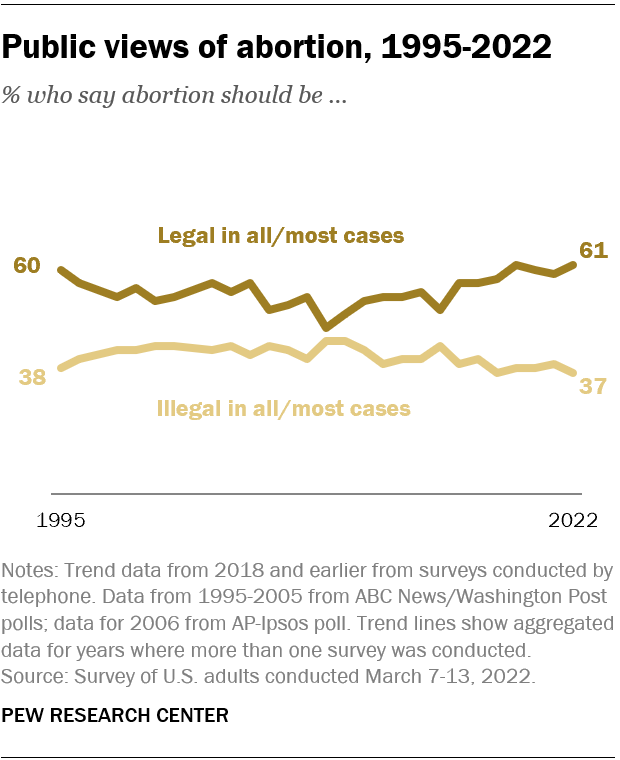
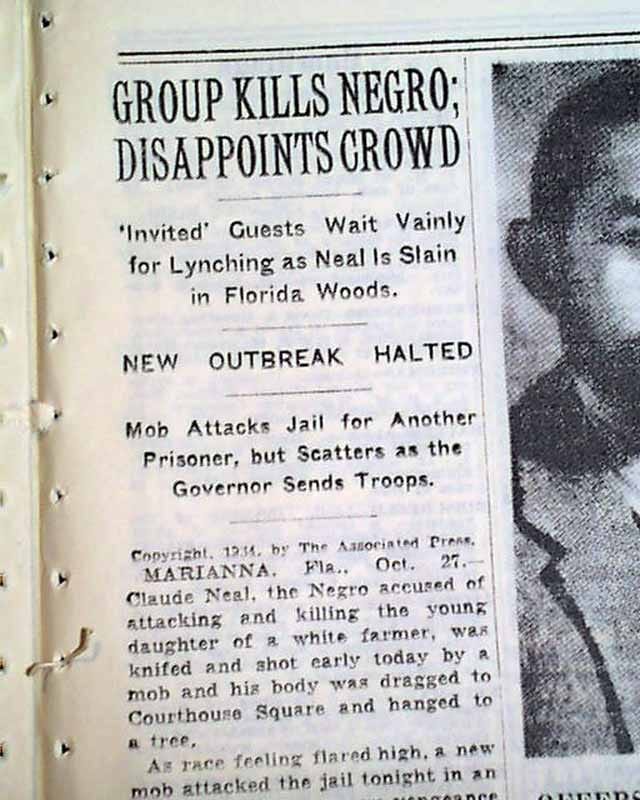


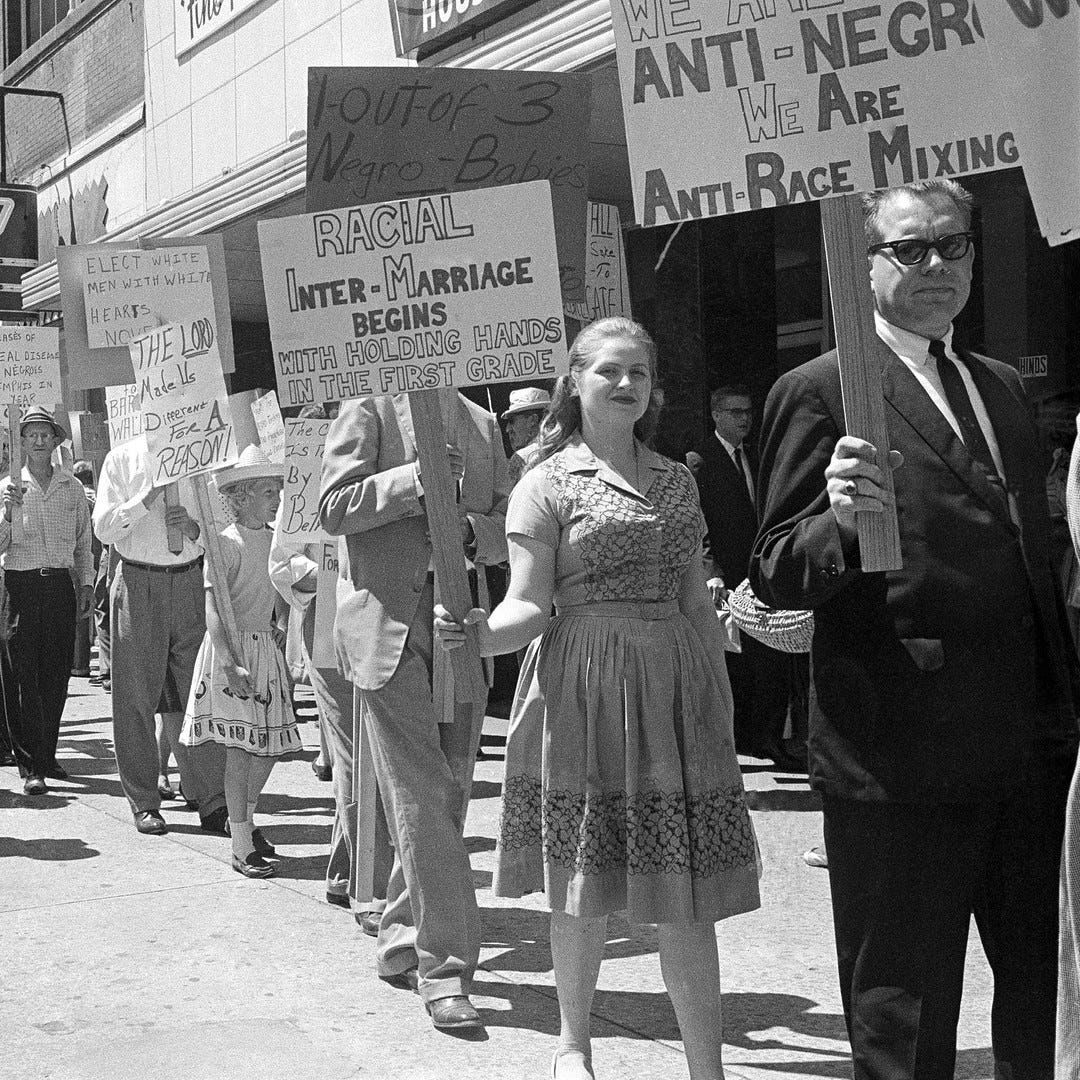
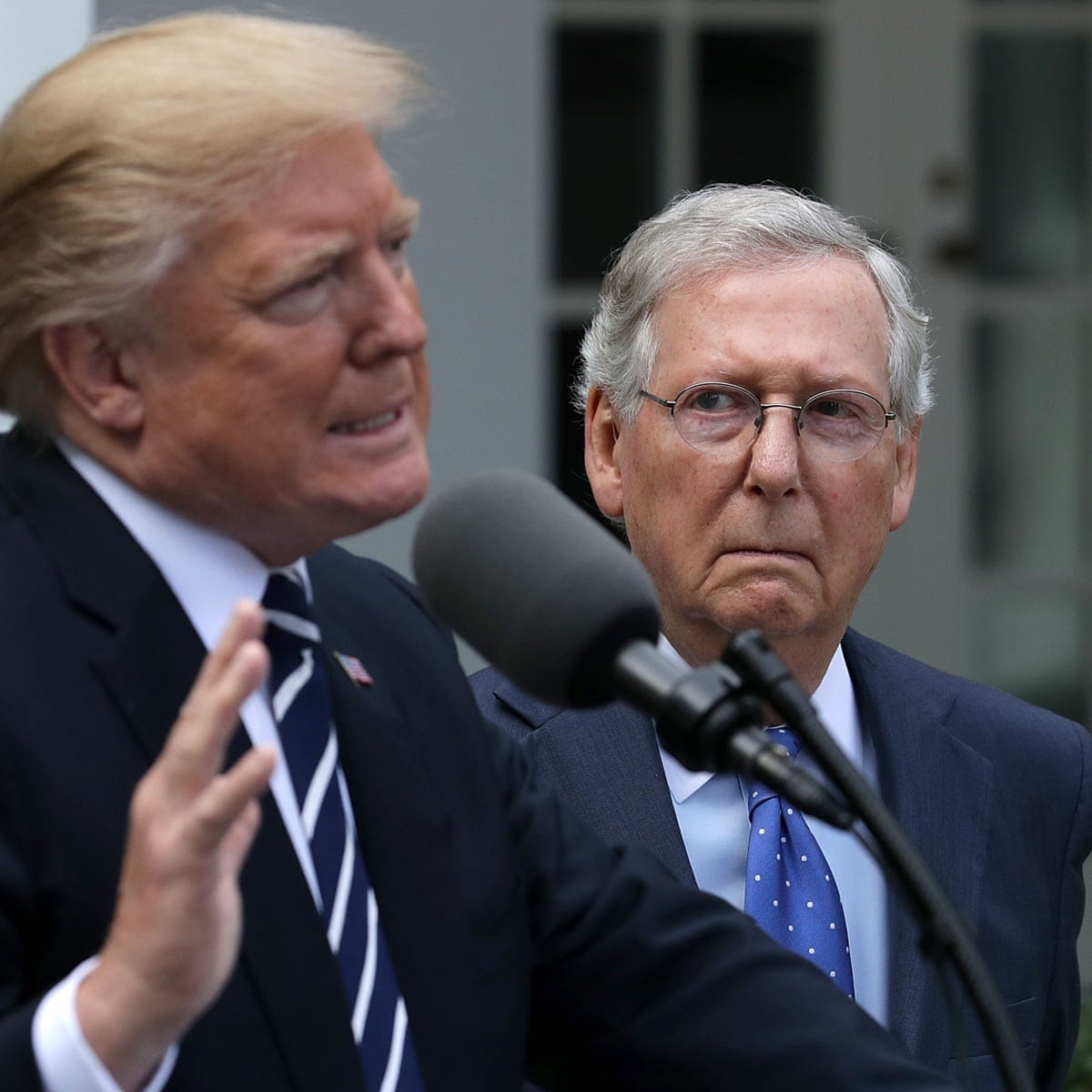
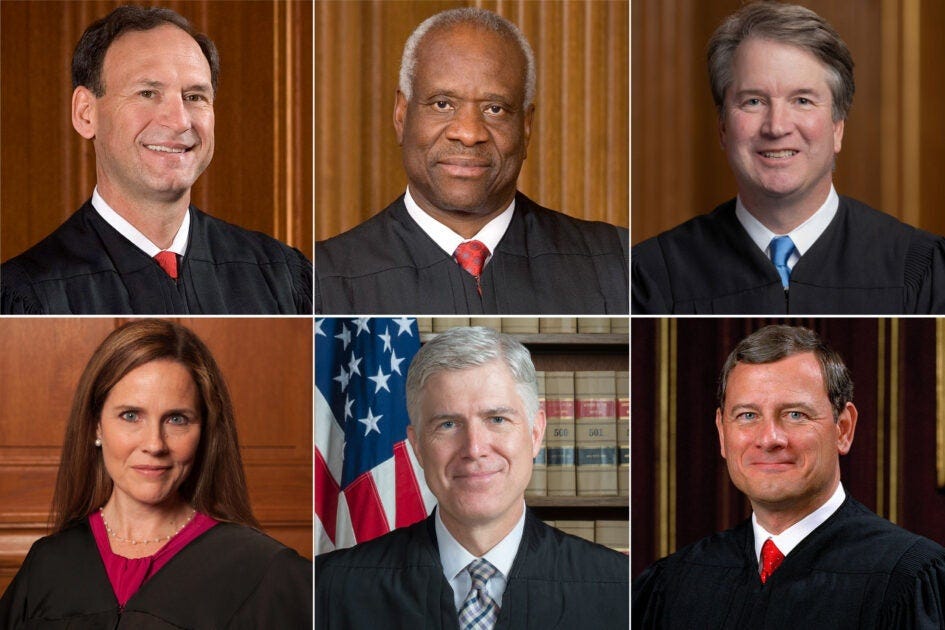
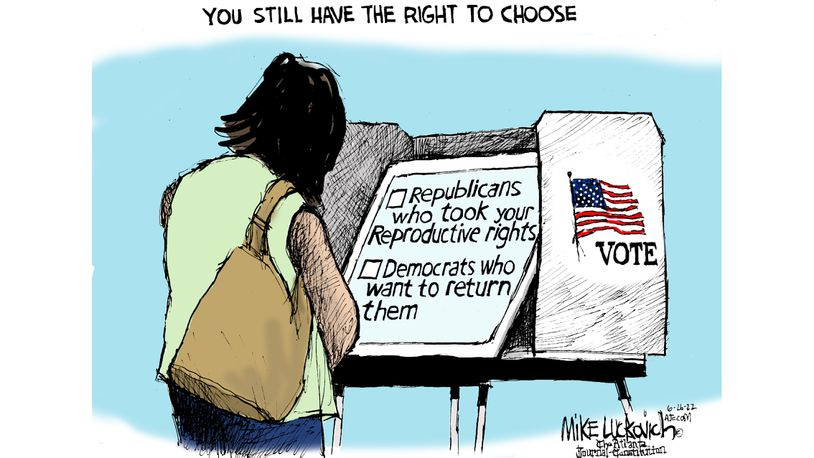
So basically this "society" was there to catch republicans early and radicalize as many as possible.
I am curious to see if women are going to be a huge shaper of the elections to come, those who tell their husbands and others one thing, and then do the opposite at the ballot box.